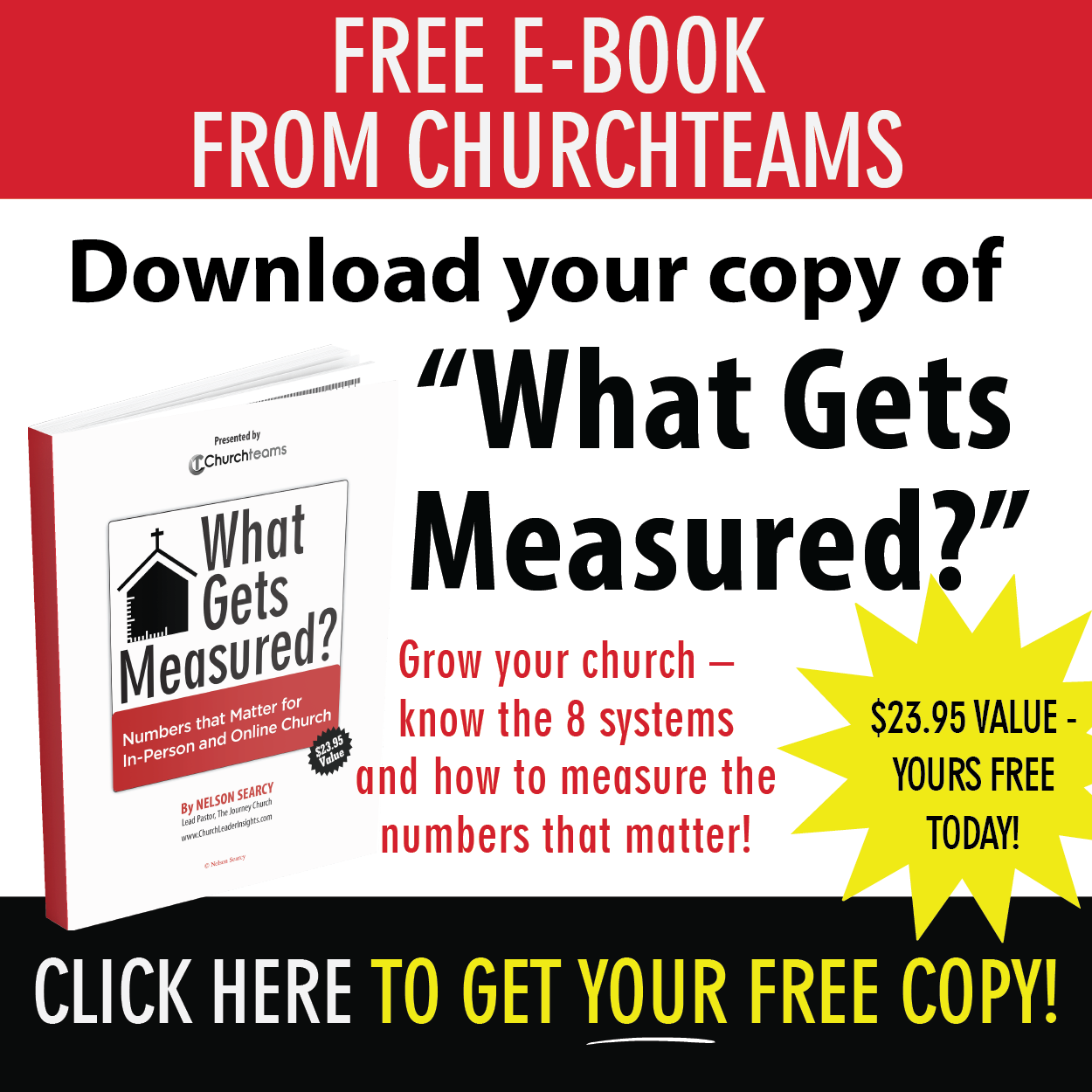 In part 1 of this post, I discussed two things not to do when choosing a church management system. In part two, I will discuss 5 things to do to make the very best CMS selection for your church.
In part 1 of this post, I discussed two things not to do when choosing a church management system. In part two, I will discuss 5 things to do to make the very best CMS selection for your church.
DO Define and align the organizational drivers of your church with what you are looking for in a CMS. No two churches are exactly the same, and no two CMS’s are the same. Every church has different growth drivers. For some, it’s a Sunday Morning worship experience. Others are super seeker sensitive. Others utilize social media and intranets. Others are based on measures and business indicators. Others have schools and community outreach. Others on involvement and service. Others are based on small groups. Others on actual discipleship. Etc. Etc. Etc. Furthermore, there is often a tension between departments regarding what is most important within an organization. You need to define ahead of time what are the top 3-5 components (in order), that your strategy says drives your church. Don’t even go to the CMS market until you have done this.
(If I am in a mega church, where money is no object, and my number 1 growth strategy is centered around putting huge resources into an impressive Sunday Morning experience for 5000 people, then the best CMS for me might look very different than if I was a church of 3000 who put my marketing dollars into community service and discipleship.) Your list of needs tailored to your church is the first apple. Once you have that apple figured out, you can start comparing it with other CMS products.
DO base your criteria on value over price, and on functionality over popularity. I am amazed at how many churches have either too many or too few CMS systems that they utilize. Use as few as possible that allow you to maximize the departments and targets of your church. Bells and whistles are only good if they are utilized and maximized in a way that saves money and produces growth. Don’t pay for bells and whistles just to have them, when you could instead pay for areas that are more central to the specific culture and strategy of your church. (I could pay an extra $300 a month for a slick feature that I really only get $150 impact from. This done several times over quickly amounts to poor stewardship. While it would be nice to have a Lamborghini to drive to work in, if I live in the snow, I would be better served spending less and getting a really good 4X4 vehicle.) Many churches are overpaying for features they don’t need and underpaying for areas they should be investing more in. Don’t pay more for a bigger bowl of porridge than you will ever need, and don’t settle for a bed that is too hard or soft in your most critical areas of growth. Do align your dollars according to value of impact, not on whether it’s the most expensive or cheapest product available.
Do get to know the priority of the owner’s motives, mission and vision for their company. Most every CMS says they are Kingdom based and ministry based. Most companies have at least 3 objectives. A) Make a profit B) Create an Amazing Product C) Make a difference in the Kingdom with the product. While CMS companies have these motives, the order in which they align these motives varies greatly. Get to know the owners and their heart, and then align their heart with the actual cost of their product, their personal involvement, and their plans for future development. There is a difference between a profit driven company and kingdom driven company. It will be reflected in the cost of their product, their commitment to help and support, and their openness to listen to you as an end user for future development.
Do get a referral list of 5 different customer who have used the product for more than 3 years, and a list of 2-3 who have left for other products. Great companies will gladly give you access to those who are using their product. If they haven’t used it 3 years, the they may not know whether they like it or not. And if you talk to someone who left a CMS product, ask why the left and how they were treated when they did leave. The answer to this questions will reveal a huge amount about the Kingdom motives of the company you are considering.
Do get a no-risk trial with support for you to try out the CMS you are considering. If a CMS doesn’t walk you through their product and make it seem pretty simple in no obligation trial format, then it will not likely be different after you are a user. Goldilocks got to sample the porridge and the beds before selecting the one that was just right for her.
Note: I have evaluated numerous CMS’s, from the high-end products such as Arena and Fellowship One, to very small mom & pop products. I have ran the criteria of parts 1 & 2 of this blog, along with other criteria, on over 50 of the top rated CMS products available. The only CMS that consistently landed in the top 3 was Churchteams. This is one CMS product you cannot go wrong with in terms of value, support, functionality, communication, future development, responsibility and all criteria mentioned in part 1 & 2 of this blog. Dollar for dollar, impact for impact you simply cannot beat their product. It will allow your church to grow exponentially, while continuing to grow with you. As an encouragement for all the things they have been doing right through the years, I have given permission for ChurchTeams to use this review. I am not receiving anything in return. If you are looking for a great apples to apples place to start, ChurchTeams is it!)



